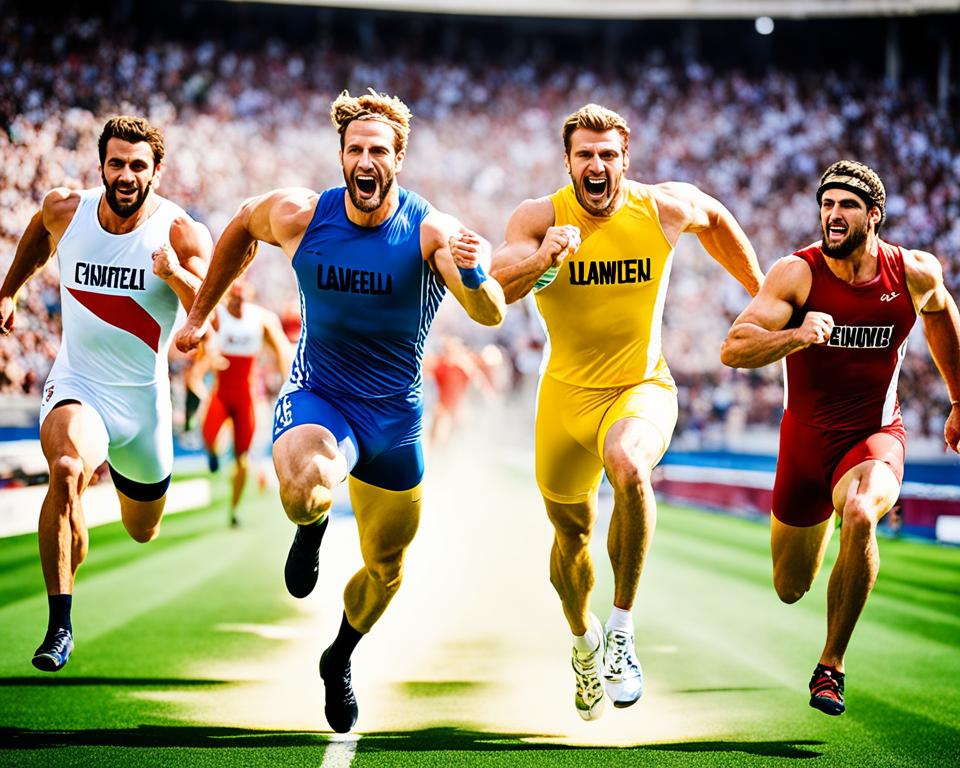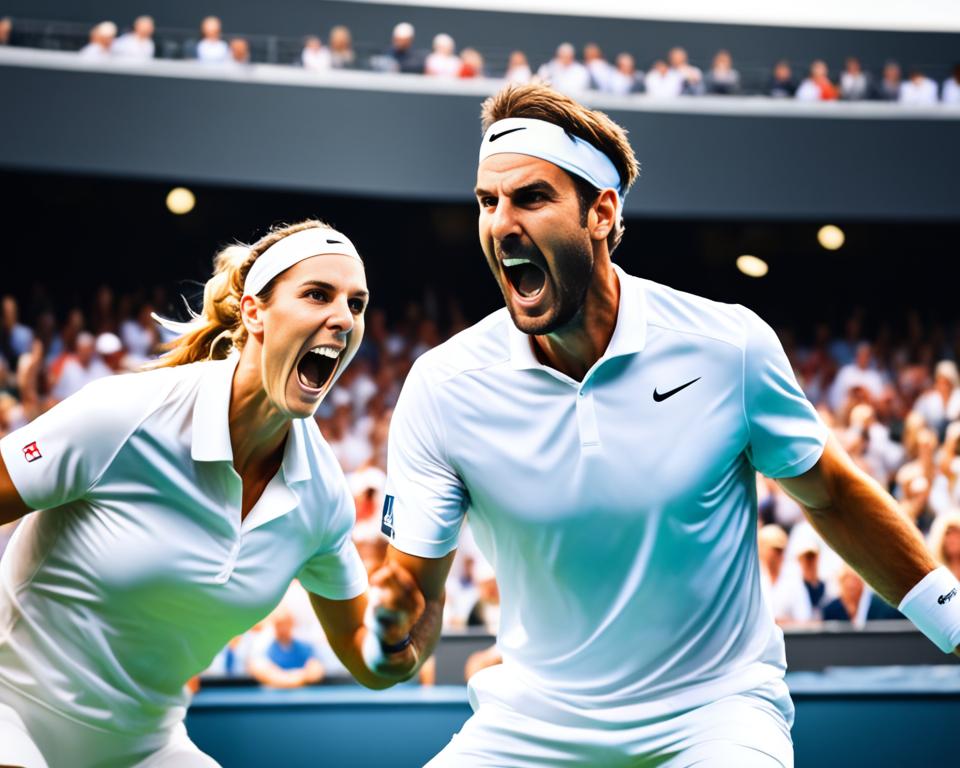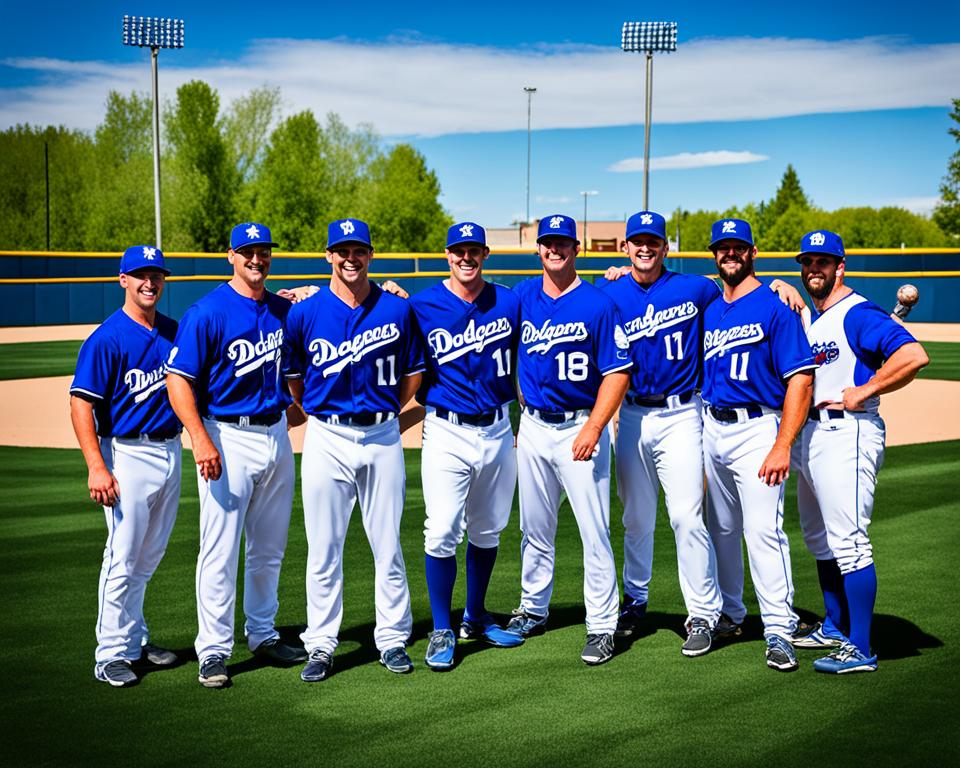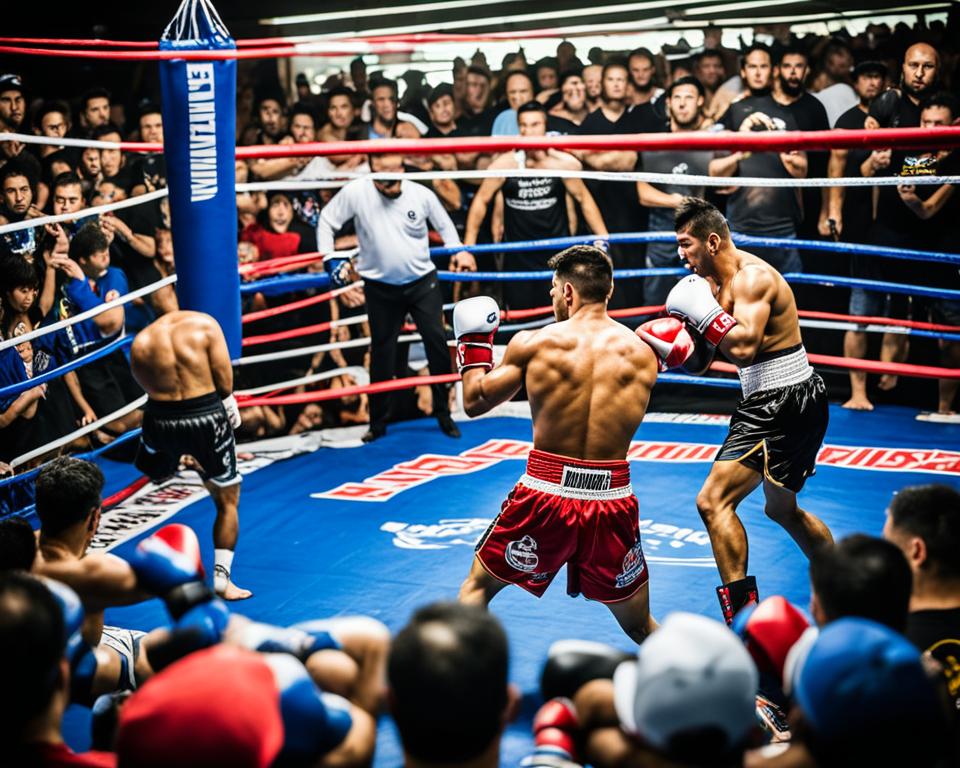Get ready for an exciting trip through the ancient Greek Olympic Games’ history! Young readers will learn about the games’ origins and why they’re so important. We’ll see how ancient Greek culture, myths, and competition came together.
You’ll find out about the different sports they played, like track and field and combat sports. Meet the ancient Greek athletes who were amazing. Learn about their training and diets that helped them win.
The games were more than sports. We’ll talk about women’s roles, the rivalry between Athens and Sparta, and the ideals of peace. We’ll also look at how the games declined and came back, showing their lasting impact.
So, get ready to go back in time with the ancient Greek Olympic Games. They inspire and fascinate young minds even today. Join us for an unforgettable journey into ancient Greece and the Olympics’ lasting legacy!
Read more interesting information at ::kamarqgroup
Exploring the Ancient Greek Olympics
The ancient Greek Olympics have a rich history that goes back to the 8th century BC. This famous event was held in Olympia and was a big part of ancient Greece‘s culture and religion.
The Origins of the Olympic Games
The first Olympic Games were in 776 BC. But they might have started even earlier. These games were a religious event for the Zeus, the top Greek god. They took place every four years in Olympia, a holy place in southern Greece.
The Sacred Site of Olympia
- Olympia was a sacred place with the Temple of Zeus and many other temples for Greek gods.
- It was thought to be where Hercules started the first games for his dad, Zeus.
- The beautiful setting by the Alpheus and Kladeos rivers made Olympia a spiritual place for the ancient greek olympics ks2.
“The Olympic Games were a showcase of Greek culture, where athletes from across the Hellenic world came to compete in a spirit of friendly rivalry and honor the gods.”
The Importance of Zeus in the Games
The ancient Greek Olympic Games were deeply connected to Greek mythology. Zeus, the king of the gods, was at the heart of the games. His influence shaped the traditions and rituals of this major event. Athletes and spectators from all over ancient Greece came to join in.
The Olympic Games honored Zeus, the top god of the Greeks. The temple of Zeus at Olympia was a sacred place. It had a huge statue of the god, made by the famous artist Phidias. This statue was one of the Seven Wonders of the Ancient World, reminding everyone of Zeus’s power.
The games were filled with religious meaning. Sacrifices, processions, and libations honored Zeus. Winners got wreaths of olive leaves, a plant linked to Zeus. This showed the divine link between the games and the god.
“Zeus, father of the Olympic gods, and you, Olympian deities, grant that this sacred contest may be brought to a successful conclusion, and bestow the victory upon the best man.”
This prayer was said before the games started. It shows how much Zeus mattered in the Olympic tradition. The games were a way to celebrate Zeus’s power and influence. Athletes and spectators sought the god’s blessings during the events.
The Ancient Olympic Events
The ancient Greek Olympics were a big deal for athletes. They had many events that showed off their skills and strength. From fast-paced track and field to tough combat sports, these games were a big deal.
Track and Field Events
The ancient Greek Olympics were famous for their track and field events. These events tested athletes’ speed, endurance, and agility. Some top events were:
- The stadion, a footrace covering a distance of approximately 192 meters
- The diaulos, a double-length race of around 384 meters
- The dolichos, a long-distance race that could vary in length from 7 to 24 ancient Greek stadia
- The hoplitodromos, a race where athletes ran in full ancient Greek armor
Combat Sports
The ancient Olympic Games also had combat sports. Athletes fought each other to show who was the best. These events included:
- Wrestling (pale), where opponents tried to pin each other down
- Boxing (pygmachia), where athletes wore leather gloves and hit each other
- Pankration (pankration), a mix of wrestling and boxing with few rules
These events showed off the athletes’ strength and the deep culture of the ancient Greek Olympics.
ancient greek olympics ks2
Let’s dive into the ancient Greek Olympics, a fascinating topic for KS2 students. We’ll explore the history and cultural importance of this famous event. This will show why it’s still relevant and valuable for learning today.
The ancient Greek Olympics were more than sports events. They showed the beliefs, values, and traditions of a whole civilization. By learning about them, KS2 students can see how ancient Greece shaped Western culture.
From the myths behind the games to the sacred site of Olympia, there’s a lot to learn. Teachers can make it fun with interactive activities and visual aids. This helps students appreciate history and its effects on today.
By studying the ancient Greek Olympics, KS2 students will learn a lot. They’ll understand:
- The role of gods, especially Zeus, in the games
- The importance of different athletic events
- How ancient Greek athletes trained and ate
- The place of women in the Olympics and gender attitudes
- The rivalries between city-states like Athens and Sparta
- The Olympic truce and the ideals of peace and unity
Looking into the ancient Greek Olympics gives us a peek into the past. It also teaches us valuable lessons for today’s students. This exploration helps young learners value ancient Greek culture and its global impact.
The Athletes of Ancient Greece
The ancient Greek Olympic Games were famous for the amazing skills of the athletes. These athletes showed incredible dedication and discipline. They trained hard and ate right to get ready for the games.
Training Regimes and Diets
The ancient Greek athletes worked hard in their training. They spent hours improving their skills and getting stronger. They learned from skilled coaches.
Their diets were special, designed to give them the energy they needed. They ate foods like barley, wheat, cheese, figs, and meats. They also ate dried fruits and nuts for extra nutrients.
This careful training and eating helped them do well in the Olympic Games.
“The true victory is not in the contest, but in the preparation.” – Ancient Greek Proverb
The athletes of ancient Greece showed what’s possible with hard work and a drive for perfection. They inspire today’s athletes to reach new heights.
The Olympic Torch and Rituals
The ancient Olympic games in ancient Greece were full of symbolic rituals and traditions. These added to the grandeur and reverence of the event. The lighting and relay of the Olympic torch was a key tradition.
The torch-lighting ceremony happened at Olympia, the games’ birthplace. A high priestess lit the flame using a mirror and the sun’s rays. Then, runners carried the flame to the host city of the games.
This torch relay was more than a ceremony. It showed the divine fire passing from gods to mortal athletes. This made the games sacred. As the flame went from Olympia to the host city, it brought the Greek city-states together. It created a spirit of unity and sportsmanship among the athletes.
Other rituals included animal sacrifices, the Olympic Truce reading, and crowning winners with olive wreaths. These traditions made the event more grand. They also showed the deep connection between the games, the gods, and Greek life.
“The Olympic flame was a sacred fire, kindled at Olympia by the rays of the sun, and kept burning throughout the celebration of the Games.”
The Role of Women in the Ancient Olympics
The ancient Greek Olympic Games were mostly for men, but women played a part too. In ancient Greek society, women’s roles in the Olympic Games were complex. They had a mix of views on women’s involvement.
Women took part in the Heraea festival, honoring the goddess Hera. This festival had races for women only. Winners got olive crowns, just like the men.
But, women couldn’t watch the main Olympic Games events. If they tried, they could be thrown off a cliff. This rule kept the games pure and for men only.
Some women still found ways to be part of the ancient Greek Olympics. They could enter their horses in equestrian events. And women from high ranks played big roles in the religious parts of the Olympic Games.
In summary, the ancient Greek Olympics were mostly for men, but women had a role. Their place in the Olympic Games showed the deeper cultural and social views of the time. These views are still studied today.
The Myth of Hercules and the Olympic Games
The ancient Greek mythology is deeply linked to the Olympic Games. The story of Hercules, a legendary Greek hero, is a key part of this connection. It tells us how he was tied to the famous sports event.
Hercules, the son of Zeus, is said to have started the ancient Olympic Games. After finishing his Twelve Labors, he wanted to honor his father, the king of the gods. So, he created a quadrennial festival in Olympia, a place sacred to Zeus. This event became a key part of Greek culture and identity.
The myth of Hercules gave the Olympic Games a divine touch. Being the son of Zeus, Hercules was like a god. His link to the Games made them seem more special and important.
Also, the Olympic Truce, a time of peace and goodwill during the Games, was started by Hercules. This tradition allowed athletes and fans to travel safely to Olympia. It made the Olympic Games even more significant in ancient Greece.
“The Olympic Games were not just about athletic skill. They were about mixing mythology, religion, and cultural identity in ancient Greece.”
The story of Hercules and the Olympic Games still fascinates and motivates us today. It shows the strong bond between Greek mythology, sports, and the values of ancient Greece.
Athens vs. Sparta: Rival City-States
In ancient times, Athens and Sparta were big rivals. They competed in the Olympic Games too. These city-states had different cultures and politics. This shaped how they saw sports.
The Spartan Warrior Ethos
Sparta was all about being tough. They trained young athletes hard. They focused on strength, discipline, and lasting through tough times. Winning in the Olympics meant showing off their military strength.
Athens was more into knowledge and art. Their athletes came from the rich parts of society. They trained in both body and mind.
“The Spartan athlete was a warrior first, and a competitor second.”
This difference changed how Athens and Sparta saw the Olympics. Sparta wanted to win to show off their military might. Athens saw it as a chance to show off their culture and knowledge.
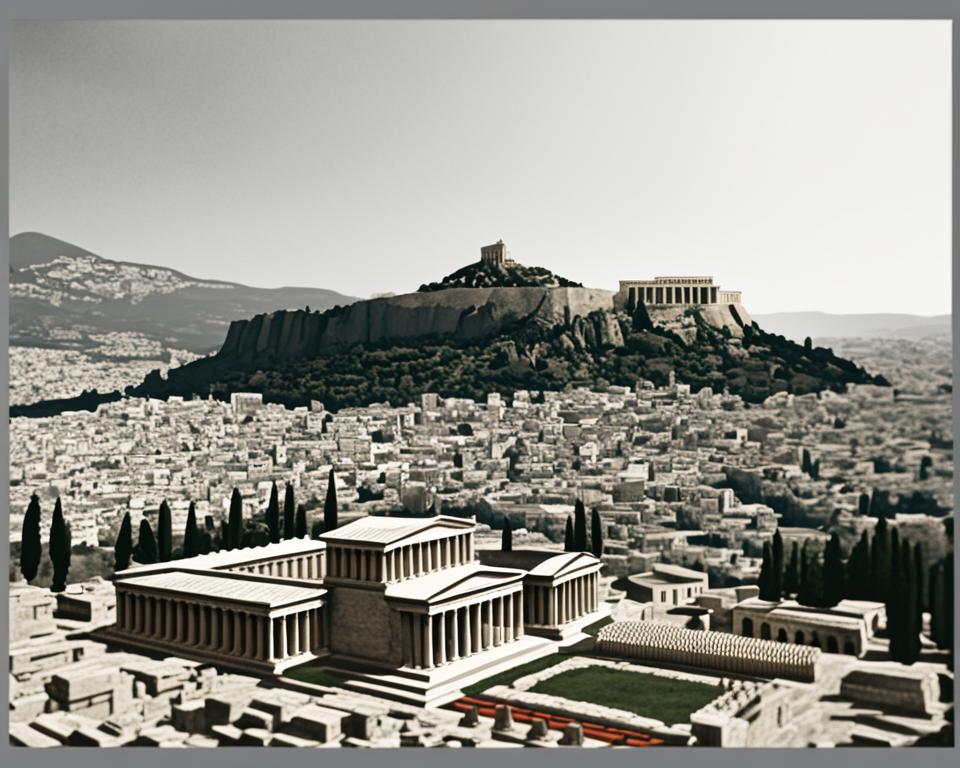
The rivalry between Athens and Sparta was huge at the Olympics. They both wanted to win for their city and their pride. This rivalry made the Olympics more exciting. It also showed the deep political and cultural differences between the two cities.
The Olympic Truce and Peace Ideals
The ancient Greek Olympic Games were more than just sports events. They stood for peace and unity. A key tradition was the Olympic Truce. This was a time when all fighting stopped to let athletes and fans travel safely to Olympia.
This tradition was called the “Ekecheiria.” It showed the wish for peace and making up in the Greek world. Wars stopped, and everyone could go to the games safely.
The Olympic Truce was based on the idea that the games should bring people together. It showed the values of fair play, friendship, and winning in peace.
- The Olympic Truce was a sacred period observed to ensure the safe passage of athletes and spectators to and from the ancient Greece region of Olympia.
- It was a time-honored practice that reflected the broader aspirations for harmony and reconciliation in the Greek world.
- During the truce, all hostilities and military conflicts were suspended, allowing athletes and fans to travel to the games without fear of harm.
- The truce symbolized the Greek ideals of sportsmanship, camaraderie, and the pursuit of excellence through peaceful competition.
“The Olympic Games were not just about athletic prowess, but also about the pursuit of peace and unity in the ancient Greek world.”
The Olympic Truce showed how sports can bring people together. It showed that the games could be a symbol of peace and unity, even when people are different.
| Year | Duration of Olympic Truce | Notable Events |
|---|---|---|
| 776 BC | 1 month | First recorded Olympic Games in Olympia |
| 480 BC | 3 months | Truce extended to allow athletes to travel safely during the Persian Wars |
| 328 BC | 6 months | Truce duration increased to accommodate the growing popularity of the games |
The Decline of the Ancient Olympic Games
The ancient Greek Olympic Games lasted for centuries before they declined and stopped. Many changes in politics, society, and culture in ancient Greece led to this downfall.
Christianity’s rise in the Roman Empire was a big reason for the Olympic Games‘ decline. Christians saw the Games as pagan and tried to stop them.
Wars and political instability also hurt the Olympic Games. The Visigoths’ invasion in the 5th century AD and the fall of the Roman Empire made things worse.
The Olympic Games became more about money and politics than sports and spirituality. This change made them less popular and eventually, they stopped.
“The ancient Olympic Games were a reflection of the cultural and political changes that were taking place in the ancient Greek world. Their decline was the result of a complex interplay of factors that ultimately led to the end of this iconic sporting event.”
Even though the ancient Olympic Games are gone, they still inspire us today. They left a lasting mark on ancient Greece‘s history and culture.
The Revival of the Modern Olympics
The ancient Greek Olympic Games may have ended, but their legacy lived on. In the late 19th century, the modern Olympic Games were brought back to life. This was thanks to French educator Pierre de Coubertin, who wanted to bring back the Olympic values of sportsmanship, friendship, and working together across countries.
The Impact of the Ancient Games
The ancient Greek Olympic Games had a big influence on the modern Olympic movement. The modern Olympics took many ideas from the ancient games, like the Olympic flame, the Olympic oath, and the opening and closing ceremonies. They also kept the focus on the unity of mind, body, and spirit.
The sports in the ancient Olympics, like track and field, wrestling, and horse riding, are still in the modern Games. This link to the past gives the modern Olympics a sense of history and culture.
| Ancient Greek Olympics | Modern Olympic Games |
|---|---|
| Held in Olympia, Greece | Held in various host cities around the world |
| Primarily focused on athletic competitions | Includes a wide range of sports, from traditional to modern events |
| Held every four years | Held every four years, with the exception of the cancellations during World Wars |
| Participation limited to male citizens of ancient Greek city-states | Open to athletes from around the world, including women |
The revival of the modern Olympic games in the late 19th century showed the lasting impact of the ancient Greek olympics. By using the history and traditions of the past, the modern Olympics brought back the spirit of athletic greatness and global friendship seen in the ancient games.
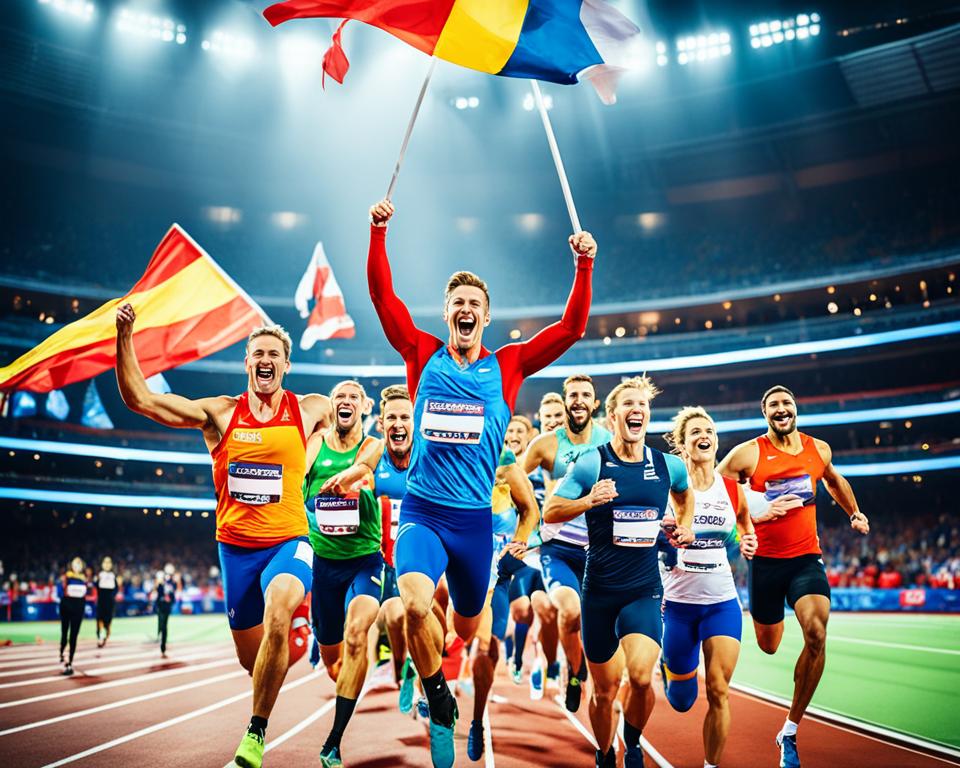
Conclusion
The ancient Greek Olympic Games have left a lasting mark on history. They continue to capture and inspire people worldwide. From being a sacred celebration of Zeus to a display of athletic skill and cultural unity, these games have endured. They show the spirit of human achievement that never fades.
Looking back at the ancient greek olympics ks2, we see their big impact on ancient greece. These events brought national pride and community together. They also allowed for the sharing of ideas, celebrating art and intellect, and promoting peace and understanding.
Today, the modern Olympic Games still carry the values and traditions of the ancient ones. They inspire athletes, fans, and people everywhere to reach new heights and to see the power of sport in bringing us together. By exploring the history and cultural importance of the ancient greek olympics ks2, we appreciate more the lasting effect these games have had on our world.
